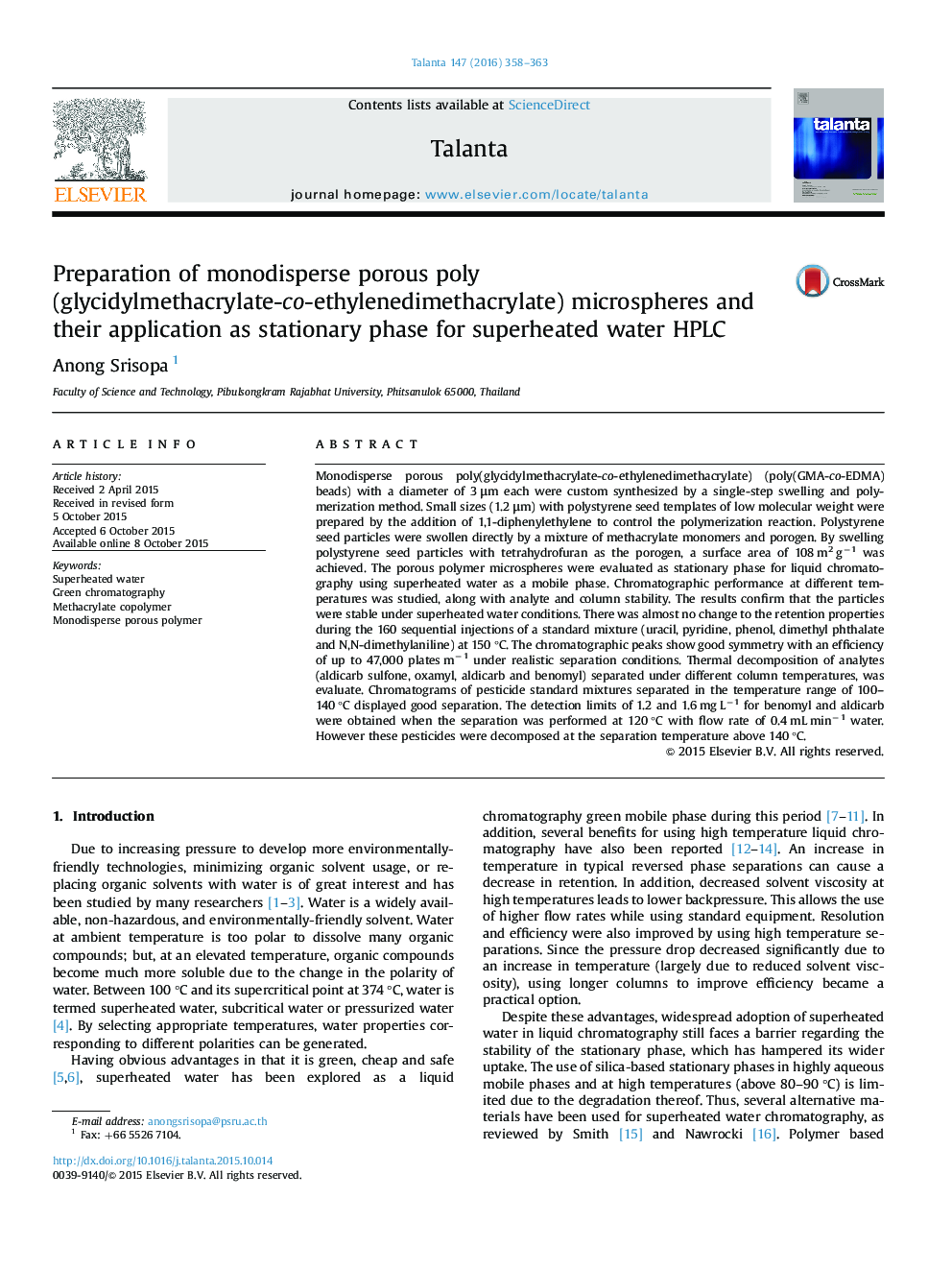| کد مقاله | کد نشریه | سال انتشار | مقاله انگلیسی | نسخه تمام متن |
|---|---|---|---|---|
| 1242767 | 1495788 | 2016 | 6 صفحه PDF | دانلود رایگان |

• Single step swelling and polymerization of monodisperse porous poly(GMA-co-EDMA) particles are presented.
• Proposed monodisperse porous poly(GMA-co-EDMA) particles having particle size of 3 μm are ideal for HPLC packing materials.
• Monodisperse porous poly(GMA-co-EDMA) particles were firstly applied as high temperature HPLC stationary phases.
• The particles were stable under superheated water conditions and the chromatographic peaks show good symmetry.
• Pesticide standard separation using poly(GMA-co-EDMA) stationary phase under superheated water condition is practical.
Monodisperse porous poly(glycidylmethacrylate-co-ethylenedimethacrylate) (poly(GMA-co-EDMA) beads) with a diameter of 3 μm each were custom synthesized by a single-step swelling and polymerization method. Small sizes (1.2 μm) with polystyrene seed templates of low molecular weight were prepared by the addition of 1,1-diphenylethylene to control the polymerization reaction. Polystyrene seed particles were swollen directly by a mixture of methacrylate monomers and porogen. By swelling polystyrene seed particles with tetrahydrofuran as the porogen, a surface area of 108 m2 g−1 was achieved. The porous polymer microspheres were evaluated as stationary phase for liquid chromatography using superheated water as a mobile phase. Chromatographic performance at different temperatures was studied, along with analyte and column stability. The results confirm that the particles were stable under superheated water conditions. There was almost no change to the retention properties during the 160 sequential injections of a standard mixture (uracil, pyridine, phenol, dimethyl phthalate and N,N-dimethylaniline) at 150 °C. The chromatographic peaks show good symmetry with an efficiency of up to 47,000 plates m−1 under realistic separation conditions. Thermal decomposition of analytes (aldicarb sulfone, oxamyl, aldicarb and benomyl) separated under different column temperatures, was evaluate. Chromatograms of pesticide standard mixtures separated in the temperature range of 100–140 °C displayed good separation. The detection limits of 1.2 and 1.6 mg L−1 for benomyl and aldicarb were obtained when the separation was performed at 120 °C with flow rate of 0.4 mL min−1 water. However these pesticides were decomposed at the separation temperature above 140 °C.
Monodisperse poly(GMA-co-EDMA) particles have been synthesized using a swelling method and used for high temperature HPLC with pure water as mobile phase. These particles had favorable properties for use as stationary phase under superheated water condition. The polymer particles are stable and the chromatographic peaks show good symmetry.Figure optionsDownload as PowerPoint slide
Journal: Talanta - Volume 147, 15 January 2016, Pages 358–363